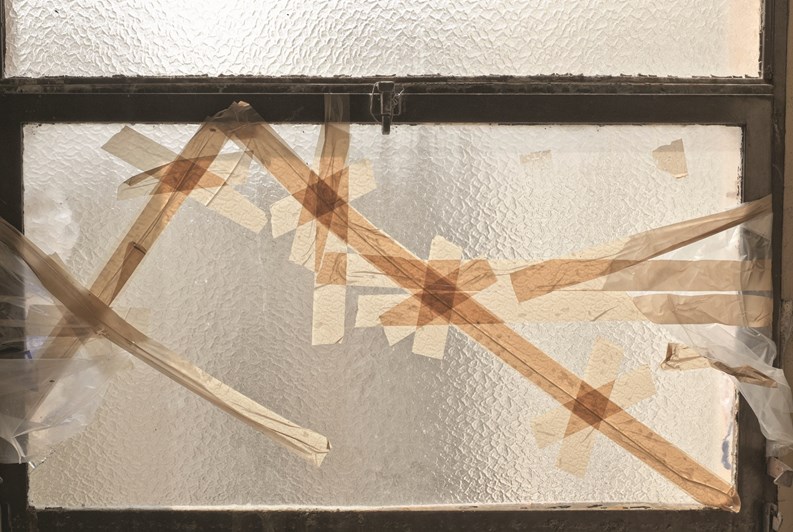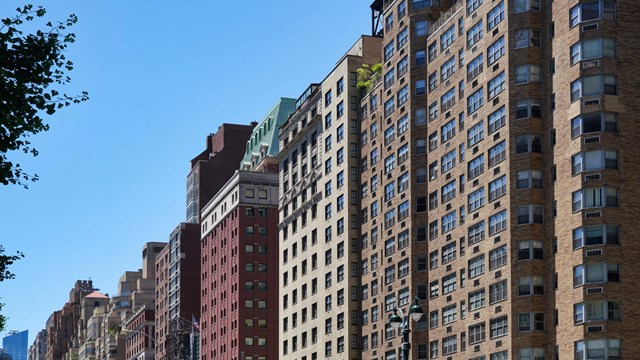Whereas certain issues are easy to delegate and oversee, such as snow and ice removal and replacing light bulbs, there are more difficult maintenance concerns. And while these problems (i.e. roof inspection, HVAC upkeep) are critical to smooth building operations, often they are not completed in a timely fashion.
“Annual inspections of some building mechanicals such as boilers and elevators are mandated by New York City,” says Rosemary Paparo, a property manager with the Manhattan-based Buchbinder & Warren management firm. “We have a proactive approach that includes regular periodic inspections and servicing of all mechanical systems.”
Paparo suggests protocols include scheduling summer boiler cleanings and overhauls, and quarterly or semi-annual inspections and servicing of pumps so building systems remain in optimal condition. “Besides their regular building inspections, our property managers perform thorough roof-to-basement quarterly inspections in each of their portfolio properties so that we have a good handle on what is going on with each property,” she adds.
Should Budgets Dictate Maintenance Schedules?
The economy has rebounded from the recession, as evidenced by an increase in construction. During the recession, however, building managers made sacrifices on maintenance concerns, simply to make ends meet. Safety—not vanity—should aid in making these types of decisions.
“I feel as if safety issues should not be put off. However, I also I feel a lot of aesthetic projects can be spaced out,” says Paul DiLeo, a property manager at FirstService Residential in New York.
“While it may not be pleasing to the eye for some residents, if dealing with a building that may not be as financially secure is it would like to be, why not replace the flooring in one or two hallways per year rather than doing the entire building at the same time?”
Importantly, board members and managers must share the same vision. “Solid communication from the board and management to the shareholders on their plan is always key,” DiLeo adds.
In many cases, the managing agent or board doesn’t have the authority to pick and choose when a project is tackled. According to the Council of New York Cooperatives & Condominiums (CNYC), the Department of Buildings requires that every retaining wall, for example, ten feet high or higher, which faces the public must be inspected every five years (and more frequently if a safety issue exists) by a qualified engineer with at least three years of relevant experience.
Different boroughs have different schedules: Staten Island compliance dates of 2016, Queens in 2017, and Brooklyn in 2018, are upcoming. Reports must be filed electronically with the Department of Buildings (DOB), certifying the condition of the retaining wall and identifying any deficiencies. Building also must comply with the Facade Inspection Safety Program (FISP), the former Local Law 11 program, that deals with the safety and inspection of building facades.
Did You Smell That?
A hallway that needs repainting or garbage receptacles beginning to break down or fray—these are issues that can be shuffled to the bottom of a board’s “to-do” list. However, there are matters that can be deadly, despite resident awareness.
“The smell of gas tops the list for management crises, followed closely by evidence of deteriorated water and sewer mains, roof and masonry deterioration, and any mechanical system which frequently fails,” says Paparo. “Life-safety issues must be attended to immediately. Basic building malfunctions can quickly become life-safety issues if not properly addressed.”
Though, delaying maintenance action can result in more trouble than the cost of addressing the issue promptly. What lies beneath the surface of a roof or the interior of a wall could be costly, if not addressed quickly.
“With water penetration situations, obviously the longer you wait to address the problem…potentially more damage may occur,” says DiLeo. “If a decision is made to put off facade repairs, or repoint your brickwork, the longer water is introduced into the interior of the building. Now, instead of having some minor sheet rock repair in the interior, you may be looking at replacing floors, replacing window frames, or the potential for mold.”
DiLeo encourages board members to view the building in the same way they care for their car. “Your oil is running low and you decided to put off an oil change, now you can potentially seize your engine. Your brake pads are wearing thin, and rather than replace them when you should, you keep driving,” he continues. “Now, not only do you need to replace your brake pads, but you would need to replace your rotors as well.”
In Paparo’s 35 years of experience, she has not found a way to “save” money when putting off projects and delaying maintenance. To this end, improperly maintained buildings incur greater repair costs on an overall annual basis, as well as accelerating the need for capital repairs and replacements.
“With respect to much exterior work, as well as some interior work, the actual scope of work usually increases the longer a project is delayed. Window lintels will rust if not painted; the rusting window lintels will then start to displace bricks,” says Paparo. “You can see where this is going…the job scope grows because the board may not have wanted to spend the money to scrape and paint lintels.”
In any maintenance deferral, there is a snowball effect to skimping on repairs. For example, if a board forgoes the window lintel work for one year, it might end up costing unit owners three times as much because a masonry issue was also created.
“In this case, the lintels have to be replaced instead of merely being scraped and painted, the surrounding bricks have to be replaced and apartment interiors have sustained water damage,” said Paparo. “The prudent thing to do is to plan and budget for regular ongoing maintenance and, when necessary, capital projects.”
A Community Associations Institute (CAI) study in 2012 found that cash-strapped boards and associations are trying everything to make do. To compensate for a cash shortfall, the CAI study shows 38 percent have postponed planned capital improvement projects, 35 percent have reduced landscaping services, 31 percent have reduced contributions to their reserve accounts—funds that are set aside for major maintenance and repairs, 23 percent have borrowed from the association’s reserve account, 16 percent have levied special assessments, 12 percent are allowing residents to perform minor tasks in the community and 6 percent have borrowed from banks and other lenders.
Who Makes the Call?
When determining who should make the decision regarding expenditures—the board or the managing agent—it’s not necessarily equitable to the “chicken and the egg,” but it’s not all that different. After all, the board hires the managing agent for guidance. But when in doubt, a third party administered reserve study could break a stalemate.
“Your property management team is a great resource. An experienced property manager will be able to assist you in prioritizing any of your needs. There are also a number of companies that can provide your building with the reserve study,” says DiLeo. “They work with your property managers and analyze your financials along with performing a thorough inspection of your building. Based on your financial situation, they can provide you with a breakdown of what should be going into your reserve account each and every year to do a number of improvements and address your maintenance needs.”
Reserve studies are done by a qualified engineer who calculates how much money is needed to cover replacements and repairs throughout the building or property. In New York, a reserve study might be known as a capital needs assessment.
While a reserve study is a suggested and an appropriate avenue, DiLeo cautions board members to view the study in a relative manner. “They should treat these reserve studies as more of a guide rather than a Bible set in stone. Based upon their inspections, they may suggest you need new carpets in your hallways in 10 years. This may not necessarily be the case as you may need carpets to be replaced sooner than 10 years, or even later than 10 years, depending on foot traffic and upkeep.”
Living in a litigious society, the threat and reality of a lawsuit is ever present. Board members have a fiduciary duty. To this end, they are obligated to act in good faith and levee prudent, logical decisions on behalf of the property and the residents they represent.
“While this is a legal issue [and I’m not a lawyer], my understanding is that boards have an obligation to use their best business judgment. We have had unfortunate situations where we have resigned from buildings because we did not think boards were making prudent decisions,” says Paparo. “And, of course, anyone can sue a co-op or condo and its board because of an equipment malfunction or an ongoing leak. Those suits can affect Directors & Officers legal liability insurance premiums.”
When it comes to liability, DiLeo recommends paying close attention to the smallest of details. “Even what some people may consider minor items, such as broken steps or a broken curb, can lead to a potential lawsuit if somebody is injured,” he continues. “A broken-down boiler in the winter leads to no heat in your building, while your building’s governing documents state it is the responsibility of the board to provide a peaceful and harmonious living environment to the residents.”
It’s no secret that boards should meet with their managing agents, and other members of their professional team including their attorneys and engineers, to review compliance with applicable laws and regulations before problems occur. This old adage still rings true in 2016: an ounce of prevention is worth a pound of cure.
W. B. King is a freelance writer and a frequent contributor to The Cooperator.







Leave a Comment